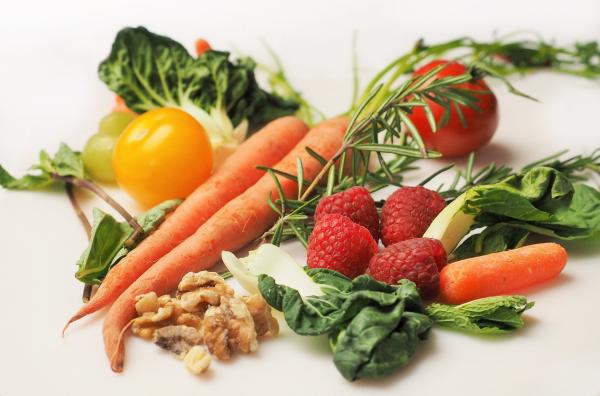Antioxidants are chemical compounds that can be a vitamin, mineral, enzyme, or one of thousands of other naturally occurring plant chemicals and many that are naturally produced by our bodies. One of their many roles is to inhibit or potentially stop harmful oxidation reactions produced by free radicals interacting with other of our body's chemicals.[1] Antioxidants neutralize unstable free radicals before it becomes toxic to the cell, while at the same time remaining stable themselves. This association is the source of supplemental antioxidants magical benefits, leading to three misconceptions.
Free radicals are an abnormal part of cellular metabolism.
False. Free radicals are a normal and necessary part of cell metabolism both at rest and during exercise. Free radicals are a normal byproduct of many biological processes. Good health requires a balance between normal and excessive production of them - they are part of our cell's everyday life and have been unnecessarily demonized. For example, below are some examples of the positive biological roles of free radicals:
- Are used by the immune system to defend against viruses, bacteria, and fungi.
- Are signaling molecules regulating our physiologic processes, e.g., muscles adaptation to exercise, regulation of blood pressure, and even production of cellular antioxidants.
- Participate in apoptosis, "programmed cell death," which lessens the risk of cancer cells' proliferation.
You are unable to obtain enough quantities of antioxidants from food. False. Food provides an overabundance of likely hundreds of antioxidants. Consider the case of Vitamin E, offered as a supplement and projected to provide $3 billion in revenue by 2026 [2]
- "Symptomatic deficiency of vitamin E rarely, if ever, occurs in humans because of inadequate oral intake of the vitamin" Even in the presence of malabsorption which is due to a genetic disorder of either Vitamin E or fat metabolism, two very infrequent conditions, "… it takes several years before plasma vitamin E levels decrease to a deficient range, because of the vitamin's presence in body stores" (Present Knowledge in Nutrition)
- "Most ingested vitamin E, because of its relatively low intestinal absorption, is excreted in the feces" (Modern Nutrition in Health and Disease).
Antioxidants are directly correlated to better health, so they must be beneficial as supplements. False. Antioxidant-rich foods are associated with better health, but this benefit has nothing to do with consuming these nutrients in an isolated form. The benefit comes from the synergistic effect of all the phytochemicals in those foods taken together.
It is a common misunderstanding that just because research illustrates a direct correlation between antioxidant-rich foods and a myriad of health benefits, then it must be the antioxidants that are providing the benefit. Correlations do not indicate causation; only that one possible component is that antioxidants may be a contributing factor in the mix. Those who suffer less from a myriad of lifestyle-related diseases, and have improved physical function, consume diets which are naturally high in the various popular supplemental antioxidants – but the antioxidants are only reflective of good dietary habits in general, one nutrient in a mix of literally thousands contained in food. Focusing solely on antioxidants as the key is irrational at best. But this is what the supplement industry, as well as most marketers of many packaged food items and drinks which contain antioxidants, would like you to believe.
"The nutrient buzzword for 1994 is 'antioxidant.' Every supplement so labeled is seen as having only an upside and no downside. This is a myth. No supplement is a pure antioxidant." Dr. Victor Herbert [3]
Vitamin C, E, and B-carotene, while mislabeled as antioxidants are in fact "…antioxidant in some circumstances (often so in the physiological quantities found in food), and pro-oxidant (producing billions of harmful free radicals) in other circumstances (often so in the pharmacological quantities found in supplements." [3]
The Main Take-Home Message
You need a balance of both oxidation and antioxidation reactions to be healthy. Free radicals are a normal part of cellular metabolism. There are no magic bullets or panaceas which can be bottled and swallowed that replace wise food choices.
[1] An oxidation reaction is when a molecule loses one of its paired electrons, causing it to become unstable. This reaction can be precipitated by an unstable free radical, which is missing an electron and in need of another, creating its instability and high reactivity when it encounters other molecules.
[2] Vitamin E Market is poised to register over 4.5% compound annual growth rate between 2020 and 2026, propelled by the increasing prevalence of cardiovascular diseases owing to the aging population & unhealthy diet Global Market Insights
[3] The late Dr. Victor Herbert was recognized as an expert by the Federation of American Societies for Experimental Biology and was a professor of medicine at Mt. Sinai School of Medicine "The Antioxidant Supplement Myth." American Journal Clinical Nutrition DOI: 10.1093/ajcn/60.2.157.




